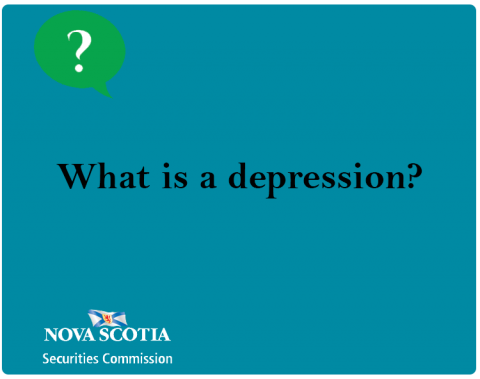Submitted by nsscadmin on

Last week we began our look at times of economic turmoil by looking at recessions. Today we’ll take a look at depressions.
The cause and effect of a recession and a depression can be very similar, but results of a depression are much worse. Like a recession, a depression sees a significant decline in economic activity, but this decline is much worse and lasts much longer, years often. During a depression, there is higher unemployment, and much larger declines in GDP. Not only does a depression last longer than a recession, it also takes longer for the economy to recover.
The most well-known example of a depression is the Great Depression, which ravaged the world’s economy from 1929 until the late 1930s. In many countries, the negative effects of the Great Depression were felt until the beginning of World War II. A look at some of the numbers from the Great Depression shows just how catastrophic it was. International trade dropped by more than 50 percent. Unemployment rose as high as 33 percent in some countries (27 percent in Canada). Worldwide GDP declined by an estimated 15 percent. If you’re wondering how that compares to a recession, during the 2008 recession, worldwide GDP fell by just under one percent.
For investors, during a recession or depression, assets can quickly lose money, which can disrupt your financial plans and retirement plans. Recessions and depressions can be very difficult times for individuals and businesses. Remember, recessions and depressions don’t last forever, and are often followed by strong periods of economic growth.
If you’re worried about a recession or depression hurting your investments, be sure to talk to your advisor and always make sure your investments fit your goals and risk tolerance.
